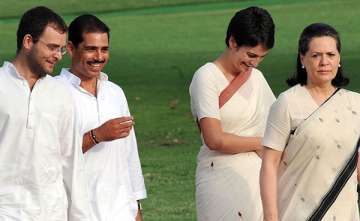New Delhi, Oct 19: After Congress president Sonia Gandhi's son-in-law Robert Vadra came under public scanner for his controversial business deals with DLF, the Congress party has been trying to defend him primarily on the ground that Vadra is a private citizen and the entire matter relates to a business deal between two private parties and therefore no fingers can be raised over these business transactions.
According to a report published in financial daily ‘Mint', many legal and financial experts believe that the Congress party's position on Robert Vadra may not be tenable in view of international law and even a circular issued by the central bank.
These experts point out that India is a full signatory to the Financial Action Task Force (FATF) on money laundering, which clearly defines a “Politically Exposed Person” (PEP) and the set of people who qualify to be PEPs and cannot, therefore, be treated merely as private citizens. India became a full signatory of FATF in 2010.
FATF is an inter-governmental body established in 1989 by the ministers of its member jurisdictions... to set standards and promote effective implementation of legal, regulatory and operational measures for combating money laundering, terrorist financing and other related threats to the integrity of the international financial system.
FATF defines domestic PEPs as “individuals who are or have been entrusted domestically with prominent public functions, for example, heads of state or of government, senior politicians, senior government, judicial or military officials, senior executives of state-owned corporations, important political party officials”.
